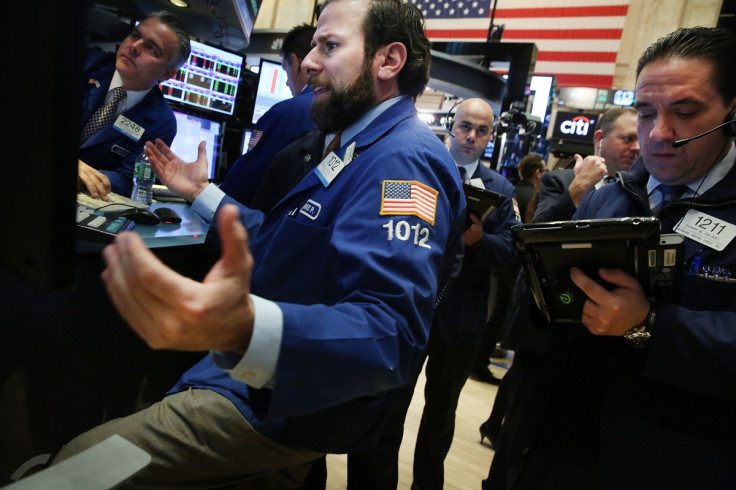US market report: Wall Street slumps as oil price decline triggers worldwide sell-off

US equity markets turned sharply south on 20 January, as the oil prices slump resumed, triggering a global sell-off that saw European stocks hit a their lowest level since October 2014. Shortly after the opening bell, the Dow Jones Industrial Average was down 1.40% to 15,790.88, while the S&P 500 and the Nasdaq were 1.33% and 1.34% lower respectively.
After a session of relative tranquility, during which they had staged a timid rebound, oil prices tumbled again, with Brent crude and West Texas Intermediate 2.46% and 2.25% respectively, as they traded at $28.07 and $28.92.
"Oil remains below $29 a barrel and looks more inclined to test the limits of how low it can go, rather than find any traction regardless of the consequences," said IG analyst Alastair McCaig.
Markets in Asia and Europe were all firmly in the red, dragged lower by the slump in oil prices, with London's FTSE 100 entering bear market territory – which defines a 20% decline from its most recent high.
The mood of investors was not improved by a series of somewhat disappointing economic reports released just before the opening bell, which showed that US inflation rose less than expected in December 2015, climbing 0.7% year-on-year compared with analysts' expectations for a 0.8% gain.
While the figure was an improvement on the previous month's 0.5% increase, it remained way short of the Federal Reserve's 2% target. According to the Bureau of Labor Statistics, the smaller-than-expected gain was attributable to a sharp decline in energy and food prices, which fell 2.4% and 0.2% respectively on a month-on-month basis.
Meanwhile, the core consumer price index, which strips out volatile items such as food and energy, rose 2.1% year-on-year in December 2015, slightly more than the 2% gain recorded in the previous month.
"None of these numbers change the big picture, of a birfurcating core consumer price index, with goods prices falling while services prices slowly picking up speed," said Ian Shepherdson, chief economist at Pantheon Macroeconomics.
Elsewhere, US housing starts fell 2.5% month-on-month in December 2015 to an annual rate of 1.15 million, falling short of the 2.3% gain analysts expected and sharply below the 10.3% advance registered in November 2015.
On the corporate front, IBM was firmly in the red after posting a drop in fourth quarter earnings late on 19 January, while US-listed shares of Royal Dutch Shell was also on the back foot after the oil giant warned its fourth quarter profit could fall as much as 40%.
Shares in Goldman Sachs slid after the bank said its fourth quarter profit slumped 65% following a $5bn (£3.55bn, €4.59bn) regulatory pay-out for the bank's mishandling of mortgage bonds.
© Copyright IBTimes 2025. All rights reserved.




















